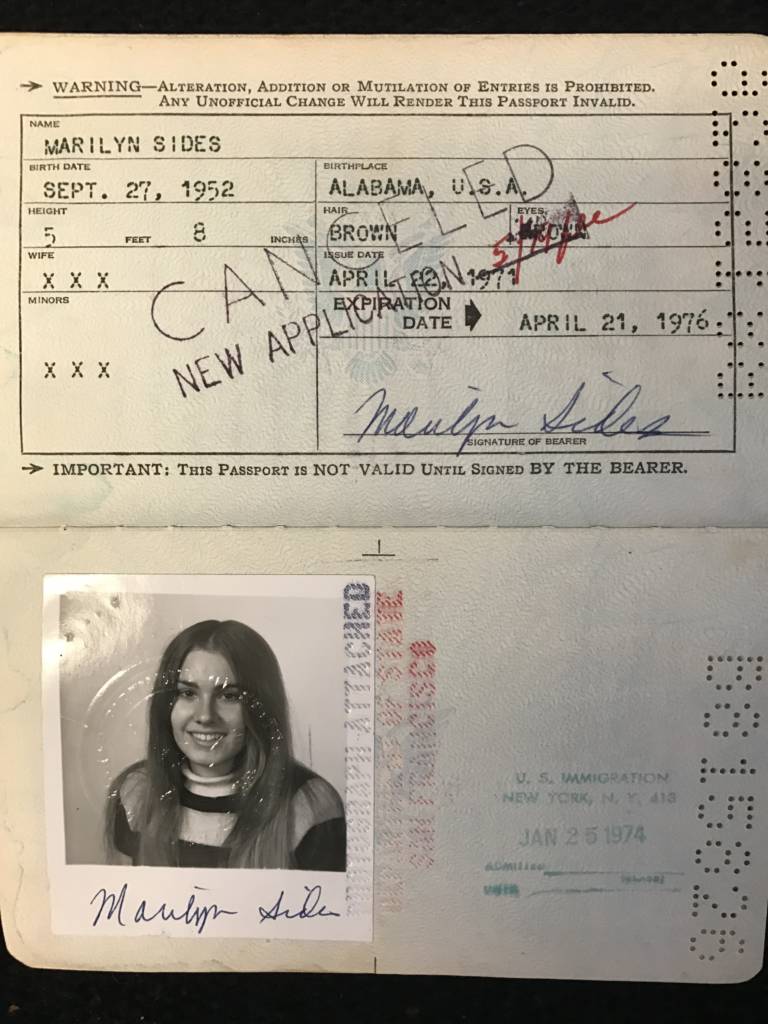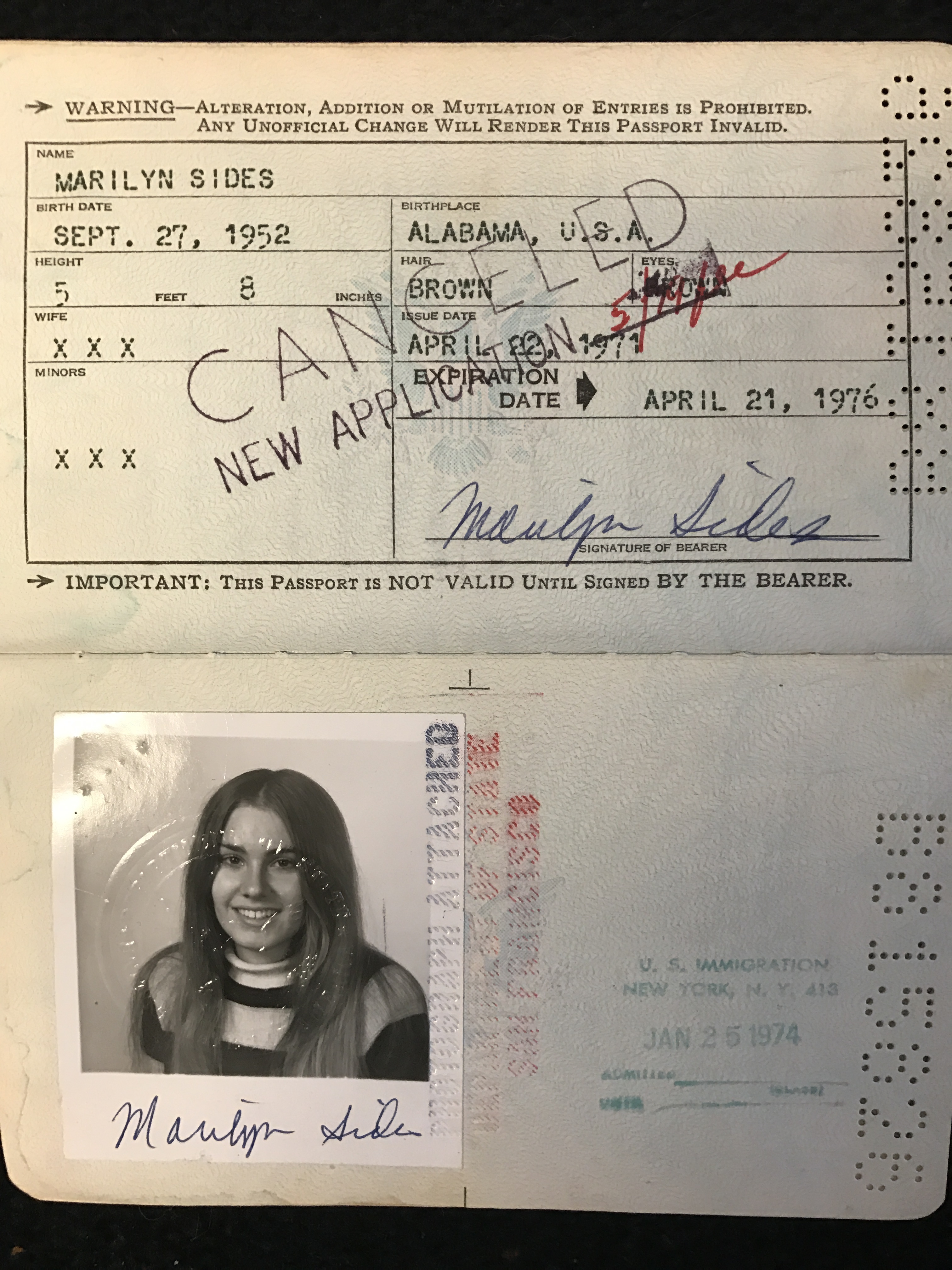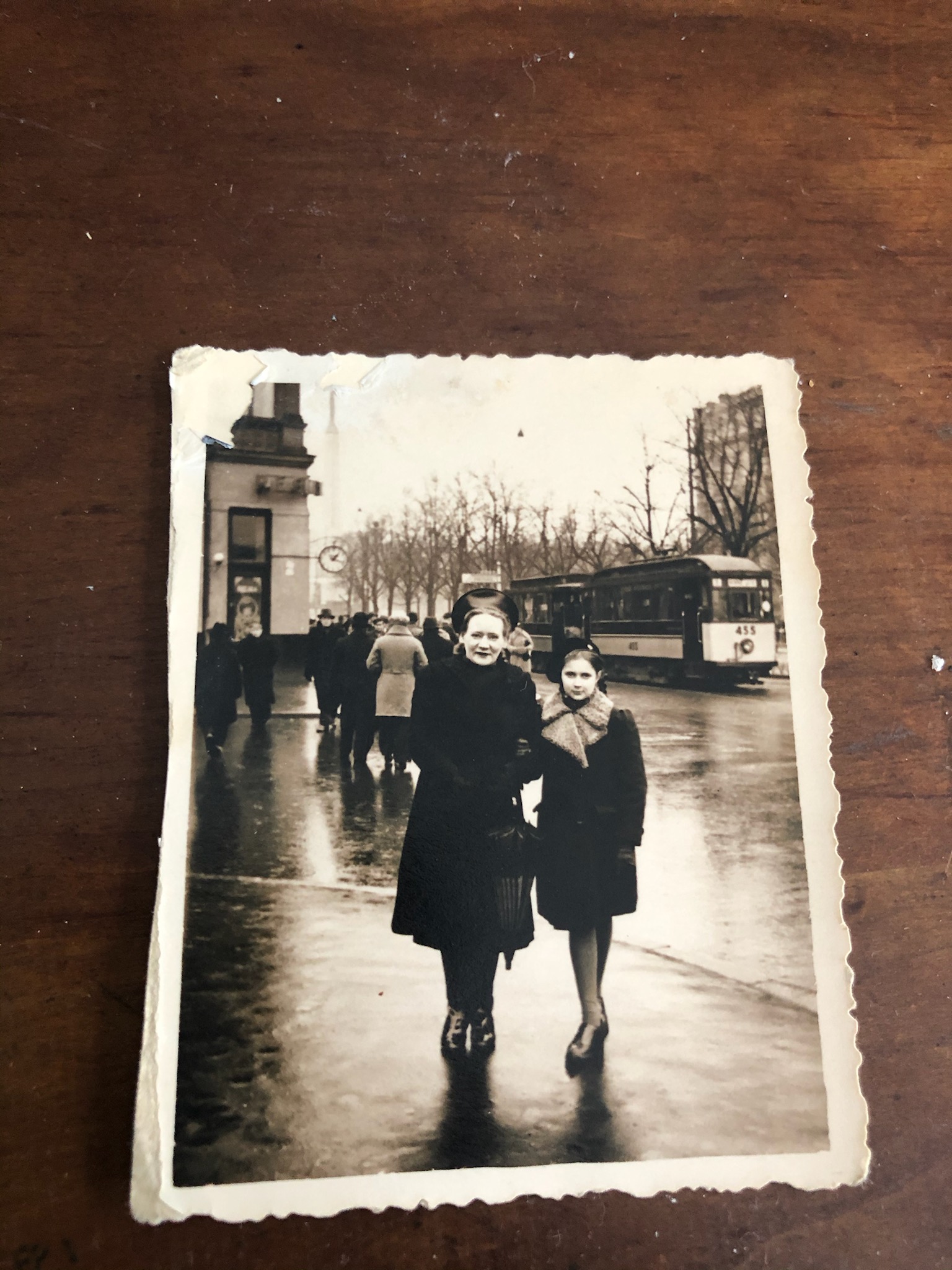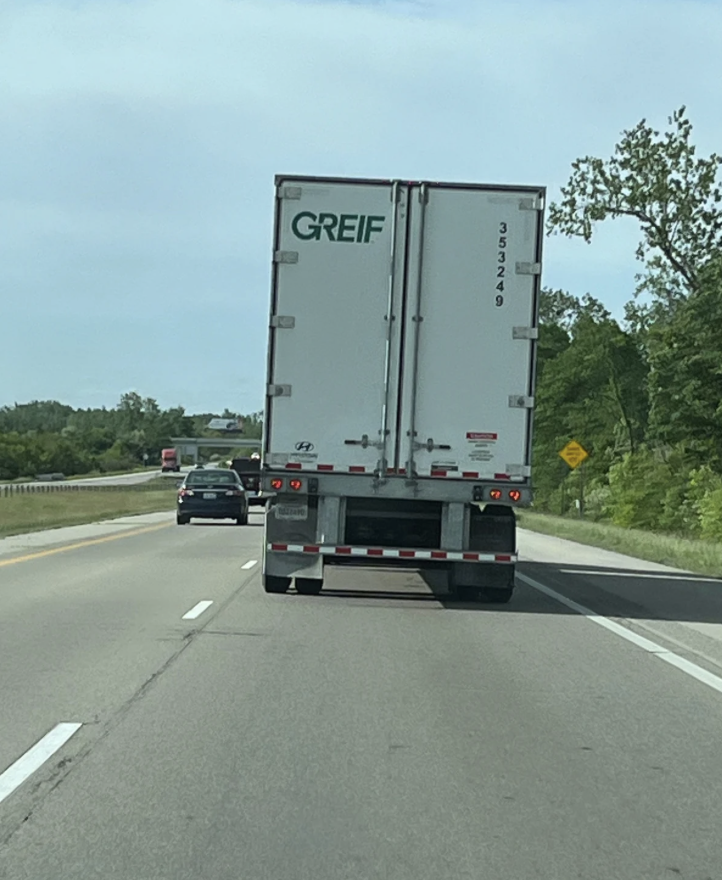Outside the town of Price stretched hundreds of miles of dusty sagebrush ringed by near and far cliffs of dirt and rock. Yet in the little town proper, thanks to a primitive grid of irrigation canals—mud walls buttressed by ancient Model-T wrecks—there were grassy lawns and trees, like the glorious apricot tree under which my father, my mother, my sister, and I sat that late summer Sunday afternoon with the Russian couple whose names I can no longer recall.
Once this desert had been the bottom of a deep sea and later, as the land lifted, a steamy swamp. Underneath our feet, beneath the thin spectral roots of the lawn and the thick grip of the apricot tree’s roots, lay a stratum of soft bituminous coal: the compounded mineralized remains of giant ferns, reeds, sharks (whose teeth my father could always find on the desert floor), and other fishes both monstrous and mousy. This coal had been mined profitably for a hundred years when my father, a coal mining engineer, moved us to the desert from our kudzu-green suburb in Alabama where the coal mines closed in the late 1960s and he’d ended up running a limestone quarry, a dead-end assignment.
I was sixteen when he told us we’d be moving. It was the only time I ever saw my mother cry. Three months later he had whisked us off to this alien state—who had ever heard of Utah?—with its otherworldly landscape, where our dripping southern accents made us freaks. Over and over again I had to recite the old Shake n’ Bake line at school: “It’s Shaaake n’ Baaake and I haaalped!”—sounded perfectly normal to me—or say “tacos,” which came out as “taaake-os.”
But my father was happy. He had his dream job.

Six years later, the Utah coal mines were no longer profitable enough. Small local mines shut down. Most of the engineers and miners drifted away.
Only the big company mines, like the ones my father ran, still operated—but not for long. My father, who had been promoted from assistant superintendent to superintendent, was now charged with the slow one-by-one selling of the company’s mines. Although only an employee of the company, my father felt this as bitterly as the selling off of an ancestral estate. Born by the light of a coal-oil lamp, fed by the coal his father had mined in small pits on their southern farm, my father had labored in coal camps, paid for his mining engineering degree with that coal money, and at last earned the right to run mines. Once these mines were sold, he would have to retire and leave coal behind.
The husband of the Russian couple was also a mining engineer. In fact, he’d been a chauffeur-driven top mining executive back in Moscow. The year before—this was in the 1970s, when the Soviet Union, in a mood for détente, let Russian Jews emigrate—his Jewish wife, an English teacher, had leapt at the chance to escape with their two children for what she was sure would be an even better life. She had talked him into quitting his job in Moscow for this Utah desert—where the mining industry had seemed so prosperous—at exactly the wrong moment.
My mother, a teacher herself who had been confined by occupation and motherhood to mostly armchair travel, commanded a kind of radar that located any well-educated middle-class foreigner, young or old, in a hundred mile radius. The Russian wife was one of her finds. For the year or two the Russian couple lived in Price, my mother did what she could to befriend the wife, assisting her with whatever perplexing living-in-America task beset her and generally taking an interest. As a teaching job was impossible, the Russian wife worked as a waitress in the coffee shop that served as the Greyhound bus stop. My mother asked my father if he could get the husband a job. By that time, no one was hiring mining engineers, either American or Russian, but my father found him a temporary job as a miner in one of his mines.
The Russian husband never complained, my mother reported.
The Russian wife did complain. My mother listened sympathetically to her long list of grievances. After all, my mother had her own grievance, though she only spoke of it once, after my father retired. She told him it was her turn, she was moving back home, and he could join her if he wanted to.
But it would be another six years before my mother would finally put her foot down. This summer afternoon beneath the apricot tree, at our Russian and American feet, the golden sheer-furred fruit, fruit my mother couldn’t cook into jam fast enough, rotted sweetly on the ground, attracting a low buzz of wasps. The desert wind that never entirely ceased its insistence blew lightly. Beyond my mother’s head—as she talked, laughed, gamely tried to keep a conversation going without the help of my father or the Russian husband who just kept smiling—the pink sandstone cliffs in the afternoon light glowed like eerie pastel fortresses of some monumental museum diorama.
My mother, in passing, mentioned my older brother and his new job in California. “Your son, when will you see him?” demanded the Russian wife, her voice stuck on emphatic.
My mother beamed. “Oh, I’m hoping we might drive out to visit him in San Francisco. He likes the city, likes to ride the subway to work, and—”
The Russian wife with a shake of her dark head, a tightening of her upper lip that bristled with black hairs, snapped: “In Moscow, subway is better.”
For the next hour, no matter the subject raised by our mother or the answer submitted to the Russian wife’s interrogation—about our schooling, a concert my mother had attended in Salt Lake City a hundred miles away, an upcoming vacation—in Russia, the Russian wife insisted: education “is better,” music “is better,” vacation “is better,” and went on at great length about a Black Sea luxury dacha belonging to the Russian mining ministry. Russia, in retrospect, now seemed to her an Eden from which she had been driven into tragic exile.
The conversation stalled.
My sister and I, required by my mother to be present for this international encounter, were bored, sullen, and silent. We already knew that any place was better than this small desert town. The high school was dinky—the teachers had told me to bring books to class to read while the others tried to learn to spell or write a grammatical sentence. The football team lost every game—they were the Carbon High School Dinos, for god’s sake. The other kids were either Mormons performing endlessly in church roadshows or Mormons who drank and drove too fast down long straight highways on ink-black nights (the stars brilliant, but too far away), their headlights off for fun, hitting deer or cars or cows, accidents announced in the local paper as “another teen dies in car wreck.”
We plotted our escapes from Utah at every moment. I had only made it as far as Salt Lake City for college; my sister was still in high school in Price. We were jealous of the Russian couple’s son and daughter who had fled after only one month in the desert to go to a big university in Ann Arbor, Michigan.
My father, his presence also required at what had come to feel like a state occasion, sat with his great height folded and tucked under him. Although years later—once we no longer lived there—we all, except my mother, felt affection for the desert, only my father had instantly fallen in love with the upsweeps of rock and dirt and sage. A solitary man, the immense emptiness suited him. His head thrown back, he gazed at the cliffs shading into lavender. The more the Russian wife spoke, the more my father appeared to not be listening, the more purely un-there he seemed, as though dispersing—even as I watched—into the thin dry desert air.
At this moment, Wishbone, our cat, appeared and lolled upon his back next to my mother, inviting her with her nice long fingernails to scratch his considerable belly. Wishbone, a mop of a cat, when shampooed and blown-dry (the latter operation involving pushing his head into the sleeve and out the cuff of a ski jacket, then directing the hair dryer’s blast into the jacket which served as a drying bonnet), appeared fluffy and white, with a black wishbone stamped on his forehead. As soon as someone opened the backdoor, though, Wishbone escaped, returning only when his fur was again matted into stiff clumps of dirty gray felt.
This particular afternoon Wishbone looked positively freakish. He fought noisily and relentlessly with the neighborhood cats; fiercely, too—his ears were deeply notched, his nose scarred. That summer he had contracted the mange, so between injury and infection he sported large sores on all his extremities. My father had taken to doctoring Wishbone, painting his wounds with an antiseptic—orangey-red mercurochrome—so that the dingy white cat’s scabby, scaly ears, legs, and tail were all dyed a dark yellow.
The Russian wife abruptly asked, “What kind of cat is that?”
My sister and I glanced at each other and then at Wishbone. Who would ever imagine that Wishbone, so obviously mongrel, was any particular breed?
“He’s a canary cat,” my father suddenly said, straight-faced.
My father spoke rarely, but when he did, what he said often featured a special kind of nonsense that first stumped then delighted my sisters, my brothers, and me. Once when he was building something in the back yard, we asked him, “What are you building?”
“A tiger cage.”
“What for?”
“The tiger, of course.”
We found ourselves thinking for just one moment, could it be possible? The next moment we knew we had been had once again.
Looking at Wishbone, I began thinking about canary cats. Cats with canary-yellow trim like Siamese cats’ brown trim? Cats that came from the Canary Islands? Or, since my father was a miner, he might also be referring to a special kind of yellow-trim cat bred to act as a test for lethal gases in the mines, just as miners once carried caged canaries down into the mine tunnels to see if they keeled over dead from the odorless fumes. I pictured countless Wishbones in countless cages held up to sniff the lamp-lit obscurity. Once more I had been tricked by my father into considering the possibilities of what was really a joke, a joke honed a little sharper than usual as he, irritated by the Russian wife’s unbearable boasting, calmly announced this absurdity “in company.” She was what he would call, when my mother was not around, “a big mouth.”
The Russian wife stared at my father, then at Wishbone.
I elbowed my sister and she elbowed me back in shared pleasure at his impertinence. My mother’s lips tightened and she gave my father a sharp glance. I could almost hear her hiss, “Glenn!”
The Russian wife said flatly, “In Russia we too have canary cat. Bigger. More yellow.”
Now my sister and I turned our faces up to the canopy of the apricot tree’s green leaves, down to the green grass and the rotting orange brown fruit, towards the cliffs purpling as the sun slipped behind them, anywhere, as long as we didn’t look at each other and burst out laughing.
My father nodded sagely. I could tell he was pleased at the unexpected distance his joke had traveled, but he didn’t show it. I knew, from experience, that if later we tried to hash the moment over with him, he would change the subject.
My mother stood up—her look dared us to cross the line from mute hilarity to outright hysteria—and offered to show the Russian wife something in the house.
But the Russians had to go. It was five o’clock and soon their children would be telephoning for their long, weekly conversation.
The very air turned amethyst as late light rolled back from the cliffs.
Another gold apricot fell, plunk, in the darker green grass.
“In Russia, we don’t waste food,” the Russian wife said.
My mother, without a touch of exasperation in her voice, said that she’d be happy for the Russian wife to take as many apricots and jars of apricot jam as she could carry.
She was irredeemably nicer than the rest of us.
The Russian husband, fair-headed and mildly handsome, had not stopped smiling the entire visit. He had not said a word about Russian subways, dachas, or canary cats. Perhaps he was bored, or perhaps his English wasn’t very good. Perhaps his silence was the mark of his deep courtesy towards us and of his compassion for his wife.
Or perhaps he found himself that Sunday afternoon simply bemused at being suspended in that radiant, arid ocean of light and color. Come Monday morning, before dawn, he would be waiting once more at the mouth of a mine to take his place in the coal car, his safety kit clipped onto the heavy belt hitched around his waist. Three miles down, he’d leave his footprints in coal dust alongside fans of fossilized ferns, the only illumination the lamp on his helmet and a string of light bulbs stretched through long low tunnels.
Marilyn Sides is the author of a collection of short stories, The Island of the Mapmaker’s Wife and Other Tales, and a novel, The Genius of Affection. She teaches at Wellesley College.




